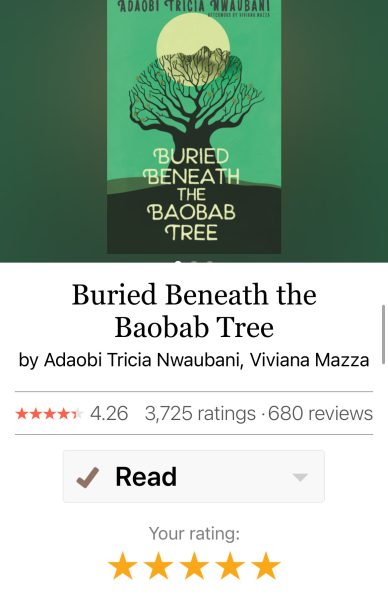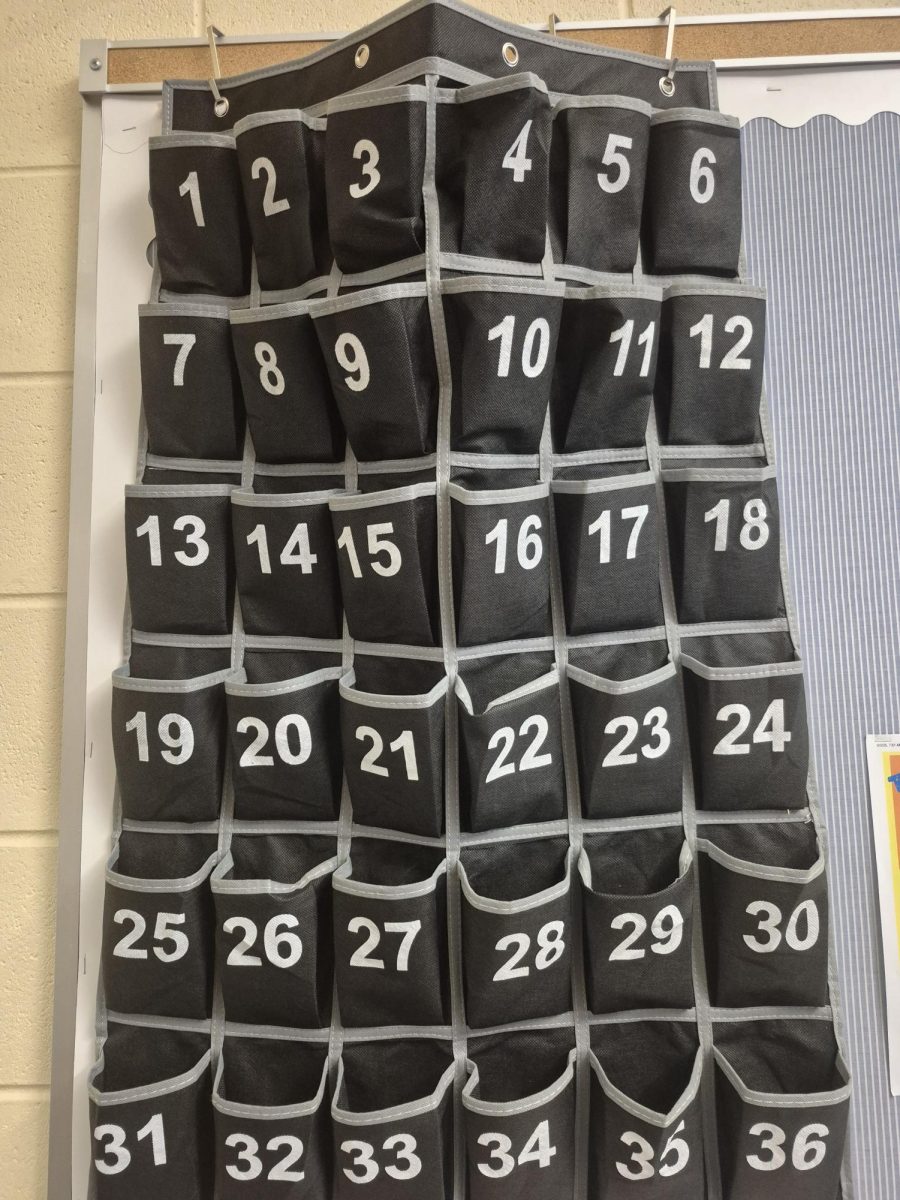Buried in the pages
As I turned the last page of my book, I looked across my living room, wondering if what I just read was real. I felt so absorbed in the story that I had no collection of where I was, who I was, or what I was doing. I picked up my

phone to check the time, and to my surprise I have been reading for over three hours. I had missed calls from my mom and 11 new text messages. I was so into my book that I didn’t realize she left about an hour ago to get groceries. I felt like I had just woken up from a long fever dream. How could a book do that? How could a book move me into a whole new world? I sat there in my living room for at least 30 more minutes.
Still in amazement that a story moved me out of reality for so long, I picked myself up and went about my day thinking about that book: Buried Beneath the Baobab Tree by Adaobi Tricia Nwaubani and Viviana Mazza. A story about the Boko Haram terrorist group and Chibok girl abductions in Nigeria. I can certainly say that I will never forget this story.
Haven’t you had enough of Instagram?
Reading has always captivated me. Books caught my attention more than any tv show could. For most people, that’s not always the case. Reading has a certain connotation with the word involuntary. Did you ever fill out those reading logs when you were in elementary school? What if that’s the reason most teens today don’t gravitate towards reading books? Perhaps this is the reason we have an involuntary connotation with consistent reading.
If you’re like most students and you don’t read for fun, you’re reading mandatory standard literature that’s borderline unbearable. While reading this kind of literature increases your knowledge greatly, this may not satisfy your longing for a story that’s true to your specific interest.
Having a book that piques your interest is beneficial, not only mentally, but helps with physical problems as well. Since reading gives these benefits, why isn’t your head stuck in a book? You may answer and say that you don’t have time between practice or other extracurricular activities, which is completely understandable. But then check your phone statistics to find out that you’ve been on Instagram reels for over four hours.
Changing this bad habit and creating a steady reading routine will help you gain knowledge and a sharper brain. Giving anyone enough mental power to get through certain projects, assignments and even conversations. People have long recognized the benefits of reading handheld books. So stop being on social media and make time to read.
“It’s a lifelong skill, and as I thought about it I mean technology fills in a lot of gaps for us, but to m
e there’s something different about finishing a story, and for me especially a book that you’re holding in your hand,” former English educator Yolanda Vega said.
Getting into your reading routine!
Eliminating distractions and screen time gets you closer to reading your next story. Here are three tips to make you a consistent and inspired reader.
-
Setting a visual timer
Having a set timer can give a steady reading pace. Visualizing a time helps you stay focused and locked into a book with as minor distractions as possible. I recommend using a pomodoro timer. The pomodoro timer technique originates from the Italian word tomato. This technique separates your timer into 25-minute intervals, or “pomodoros,” followed by a 5-minute break where you do nothing related to the work you were doing. Overly, using this technique will give you a better focus on almost anything. Limiting whatever interruptions there
may be.
-
Limiting your access to your phone
Having a time limit on particular apps can block the distraction of wanting to check your phone. Or by putting your phone away in a drawer, room, closet, anything that will prevent you from going to check notifications. “From 8 am to 8 pm, my phone is off and in a drawer. I did that this past Sunday. It was beautiful. I realize how many times I go to check my phone, and I think it helped me be more present, more in the moment.” Vega said.
Doing exactly this increases your mood and helps you realize how much we depend on our phones daily. Just take time to disconnect from the online world and get lost in a good story.
-
Find a genre that inspires you to read.
By searching for a topic of inspiration, you are not only learning about yourself as a reader, but what you enjoy, and what interest inspires you the most. “I mean, acquiring knowledge? That’s the basic part of it. But I think beyond that it helps young people, it helps all of us, develop our imagination. Kind of see what’s possible, learn about people, and explore what are those commonalities that we share, and then learn about ourselves also,” Vega said. Books can tell us a lot of information with the words written on the page, but it is combined with what the theme of the story is telling the reader as well. “Sometimes the things that we read mirror back to us, who we are, and affirm that for us,” Vega said.
Imagine
Vega mentioned an article by Rudine Bishop describing books as windows, sliding doors and mirrors. “When a book is a window it opens up our imagination to that whole world whether it’s make believe or real.
Then you can kind of step through that sliding glass door into the experience, but then also sometimes the things that we read mirror back to us, who we are,” Vega said. Reading allows limitless information, inspiration, and ideas to seep into our imaginations. Creating an open door to endless stories that shape us into who we are. “Because I think it’s important to also ask questions not just take the story as is but, what questions does this leave me with? What did I wrestle with in this theme and why? What did I really love about this story? I think being able to read and then ask the questions that come from that reading experience, I think that’s really important,” Vega said.







